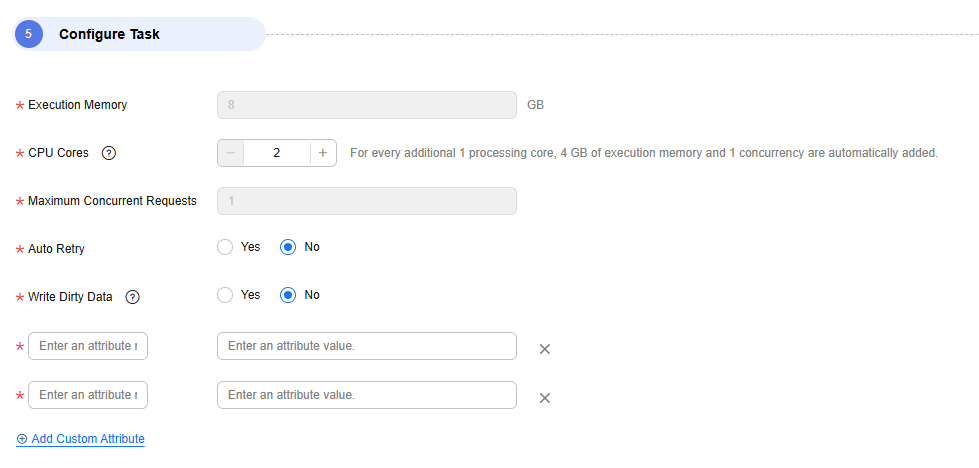Optimizing Job Parameters
Overview
The real-time data migration service uses the Flink stream processing framework and contains JobManager and TaskManager, which are the most important components of the Flink system.
If you adjust the parameters of a job, such as CPU Cores, Maximum Concurrent Requests, and Execution Memory, JobManager and TaskManager can be adjusted. By default, a job uses 2 CPUs and 8 GB memory, and a JobManager process and a TaskManager process are created, both of which use 1 CPU and 4 GB memory.
Job Optimization
The JobManager and TaskManager processes that both use 1 CPU and 4 GB memory can meet requirements in most scenarios. You can also modify the specifications of JobManager and TaskManager to meet requirements in special scenarios. A good case in point is the job memory overflow, where you can add custom attributes in the Configure Task area on the real-time migration job page and adjust the memory of JobManager and TaskManager to meet synchronization requirements.

|
Parameter |
Type |
Default Value |
Description |
|---|---|---|---|
|
jobmanager.memory.process.size |
int |
3586 MB |
Processing memory of JobManager, which directly affects the heap memory size
NOTE:
This memory occupies resources and may stop you from adding other jobs. Do not configure it unless necessary. |
|
taskmanager.memory.process.size |
int |
3686 MB |
Processing memory of TaskManager, which directly affects the heap memory size
NOTE:
This memory occupies resources and may stop you from adding other jobs. Do not configure it unless necessary. |
|
taskmanager.memory.managed.fraction |
int |
0.2 |
Percentage of the TaskManager managed memory |
|
taskmanager.memory.network.max |
int |
128 MB |
This parameter is not required by default. If there are too many instances and tables in the database and table sharing scenario, you can increase the network memory as needed. |
|
taskmanager.memory.network.fraction |
int |
0.1 |
This parameter is not required by default. If there are too many instances and tables in the database and table sharing scenario, you can increase the network memory as needed. |
|
checkpoint.interval |
int |
60000 |
Interval at which a Flink job generates checkpoints, in milliseconds. For jobs with a large amount of data, you are advised to set this parameter to a larger value, which allows for a longer time for data flushing but increases the latency. |
|
checkpoint.timeout.ms |
int |
600000 |
Timeout interval for a Flink job to generate checkpoints, in milliseconds |
Feedback
Was this page helpful?
Provide feedbackThank you very much for your feedback. We will continue working to improve the documentation.






